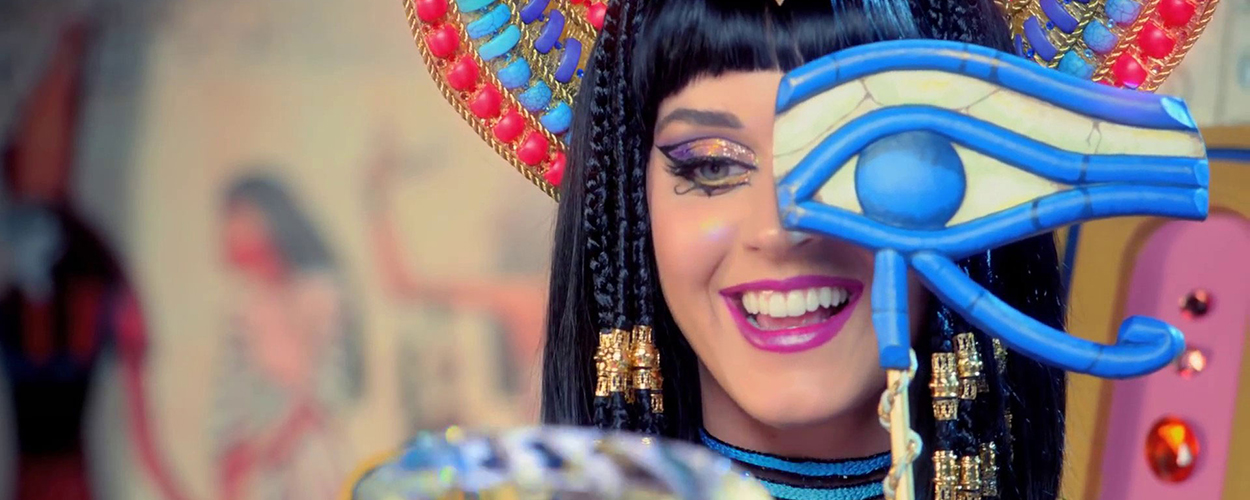This website uses cookies so that we can provide you with the best user experience possible. Cookie information is stored in your browser and performs functions such as recognising you when you return to our website and helping our team to understand which sections of the website you find most interesting and useful.
Artist News Business News Labels & Publishers Legal
Judge overturns Dark Horse song-theft judgement
By Chris Cooke | Published on Wednesday 18 March 2020

A Californian court has overturned last year’s jury decision in the ‘Dark Horse’ song-theft case, ruling that as a ‘matter of law’ Katy Perry did not infringe the copyright in earlier track ‘Joyful Noise’ on her 2013 hit.
The artist behind ‘Joyful Noise’ – Christian rapper Marcus Grey, who performs as Flame – first sued Perry and her songwriting team in 2014, the year after the release of ‘Dark Horse’. He claimed that Perry et al had been subconsciously influenced by his 2008 track, to the extent that they had lifted from it a distinct short musical phrase in its entirety, which – like Gray had in his track – they then used as an ostinato, ie it repeats throughout Perry’s song.
When the case got to court last year Perry’s team argued the their clients had never heard ‘Joyful Noise’ until Gray sued; that the elements the two songs had in common were too short and common to be protected by copyright; and that the way those elements had been employed in ‘Dark Horse’ and ‘Joyful Noise’ could be found in other songs too.
However, the jury sided with Team Gray, concluding that ‘Dark Horse’ did infringe ‘Joyful Noise’. They then subsequently awarded Gray and his business partners nearly $2.8 million in damages.
Perry’s lawyers appealed that ruling last October requesting that the jury decision be overturned as a matter of law, or that the damages bill be cut, or that a retrial be ordered.
That was mainly based on the argument that the Gray side didn’t successfully prove their case for copyright infringement in the original trial. An argument which was, in turn, based on all the things the Perry team had been saying since the start of the dispute.
Earlier this week, lawyers for the Perry side added that last week’s Ninth Circuit appeals court ruling on the ‘Stairway To Heaven’ song-theft dispute strengthened their case further. Because the appeals judges provided “an extended defence of why copyright law doesn’t cover ‘common musical elements’ and basic ‘building blocks'”, because doing so “might ‘curtail the creation of new works'”.
Yesterday the judge hearing Perry’s appeal, Christina Snyder basically agreed, entirely overturning last year’s ruling, thus meaning no cut to damages or retrial is required.
In a lengthy judgement, Snyder reviews in detail what the law says about cases like this where two songs have a short musical phrase in common. Backing much of what Perry’s lawyers previously argued, she concludes that when you apply all the precedents, Gray’s case does indeed fail as a matter of law.
“The uncontroverted evidence”, she wrote in her judgement, “points to only one conclusion”, that none of the individual elements of the musical segment shared by ‘Joyful Noise’ and ‘Dark Horse’ are “independently protectable”. Which means the key question is, did Gray’s team successfully argue in court that the shared musical segment between the two songs is “comprised of a protectable combination of otherwise unprotected elements”?
To answer that question, Snyder said, she needed to consider whether the elements that make up the shared musical segment are “numerous enough” and “arranged in a sufficiently original manner to warrant copyright protection”. Having done so, she said, “the court concludes that they do not”.
She went on: “It is undisputed in this case, even viewing the evidence in the light most favourable to plaintiffs, that the signature elements of the eight-note ostinato in ‘Joyful Noise’ – the 3-3-3-3-2-2 pitch sequence, the resolution of that sequence with a 3-2-1-5 sequence, the even rhythm without syncopation, and its development across a sparse texture – is not a particularly unique or rare combination, even in its deployment as an ostinato”.
Coming so quickly after the Ninth Circuit judgement that Led Zeppelin did not infringe earlier work ‘Taurus’, these rulings could be a sign that the American courts are seeking to end the flurry of recent lawsuits claiming infringement where a new song shares just short musical segments with an earlier work. While claims of that kind are hardly new, it’s felt the big ‘Blurred Lines’ ruling emboldened artists and lawyers considering pursuing such actions.
All that said, neither the ‘Stairway To Heaven’ nor the ‘Dark Horse’ case is as yet concluded. Plaintiffs in the ‘Stairway To Heaven’ case are expected to appeal, while attorneys repping Gray have already vowed to appeal yesterday’s judgement.





